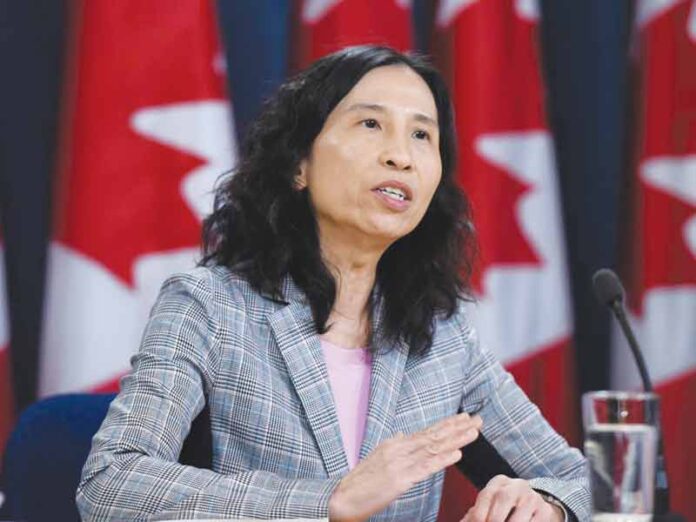Canada’s top doctor is hopeful that the country will fare better in 2022 even as the COVID-19 pandemic continues.
Chief Public Health Officer and Dr. Theresa Tam said in a year-end interview with CTV National News that Canada is in a better spot than before.
interview with CTV National News that Canada is in a better spot than before.
“It’s true that nobody can really have a crystal ball, but I think it’s just a reminder that we’re not in the same place as we were last year,” Tam said in a report by CTV on December 31.
“So much has happened [over the last] 12 months to put us, I think, and I’m still a much better spot than we were a year ago,” Tam also said.
The report noted that Canada boasts one of the highest vaccination rates in the world with more than 82 percent of the population vaccinated with at least one dose.
The pandemic rages with new variants like Delta and Omicron.
Although Tam admitted in the interview that she cannot offer Canadians a clear view of when the pandemic will end, she said the country will be able to manage the situation better.
“Every pandemic comes to an end throughout history. So, at some point, the virus activity will become more predictable,” Tam said.
“I think that in the coming months we might begin to see a little bit more predictability and also be able to protect our high-risk populations so that we can learn to live with this virus more… but I still think that in the next year, we still have to be vigilant and be able to adapt and be flexible as needed,” Tam also said.
The spread of Omicron has sparked a massive booster shot campaign.
In its report, CTV noted that in December, Canada’s National Advisory Committee on Immunization strongly recommended that booster shots be administered to Canadians aged 50 and older and those in high-risk groups to strengthen the body’s immune response against COVID-19.
When asked about Canada’s efforts to provide vaccines to other countries, Tam agreed that every developed country should be providing vaccines to low income countries.
Tam maintained that boosters are important for Canadians, especially those in higher risk groups.
“I think it Canada is taking a very reasonable approach. And we’ve we kind of have to do both… even though we’re in a developed country, it’s in a very fragile state and we got to do all that we can to minimize the severe outcomes and protect our tired and stressed healthcare system,” Tam said.
On January 5, 2022, the federal government announced that it will deliver 140 million rapid COVID-19 tests to provinces and territories this month.
Health Minister Jean-Yves Duclos made the announcement at an official update on the state of COVID-19 in Canada.
“As requested by our provincial and territorial colleagues, these tests will be allocated … on a per capita basis,” Duclos said.
“Deliveries are already well underway and we will keep you updated as often as possible,” the official said.
In an effort to limit the virus’ spread – particularly ahead of the 2021 holiday season – provincial governments made rapid tests more accessible to Canadians. Millions of people snapped them up when they could, some standing in hours-long lines at shopping malls and liquor stores.
But the demand quickly outweighed the supply, and the federal government has been under pressure to increase rapid test supply ever since.
Duclos said 120 million rapid tests have been distributed to date in Canada, with 85 million before December 2021 and 35 million in December.
“Across Canada, all levels of government are doing their best to help slow the spread of this virus and support Canadians,” he said.
“These are challenging times, but they will not last forever. We have the tools we need to get through this new wave of the pandemic. Let’s continue to exercise caution,” Duclos said.
Omicron has been driving up COVID-19 infections and hospitalizations across Canada since its introduction in the country last month.
On January 5, Canada reported 37,410 new cases and 57 deaths.
Many provinces and territories have imposed restrictions to limit the spread of Omicron, and to protect hospitals from overflowing with COVID-19 patients.
As of December 27, 2021, 1,830 COVID-19 patients were reported in Canadian hospitals, and 480 of them were in intensive care units.



